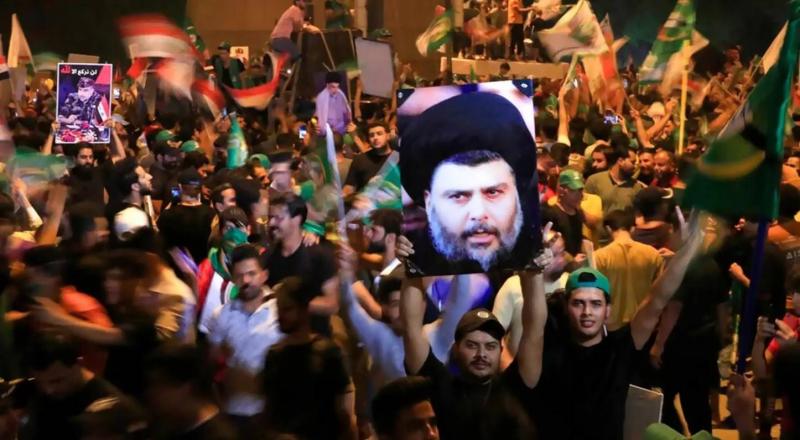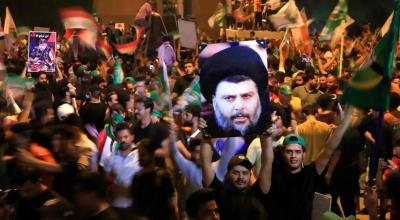Despite Iraqi leaders' commitment yesterday to proceed with efforts to form a new government following the surprising resignation of 73 lawmakers from the Sadr Bloc, most observers agree that the political scene is shrouded in uncertainty. After a prolonged political deadlock that has lasted for months since the parliamentary elections held last October, the country does not seem to be faced with easy options. "Dissolving the Parliament?!"
The resignation of parliamentary members from the Sadrist Movement, led by Shiite cleric Muqtada al-Sadr, has pushed some blocs or parties to call for the dissolution of parliament, including the "New Generation" bloc. Lawmaker Sarwa Abdul-Wahid called for the "dissolution of parliament, as the withdrawal of the biggest victor in the elections raises many questions about the council and undermines its legitimacy." She announced in a tweet yesterday that the next step for the "New Generation" lawmakers is to resort to the Federal Court regarding two issues: the interpretation of the brief period to elect the President and the interpretation of the mechanism to dissolve the Parliament.
Meanwhile, Parliament Speaker Mohammed al-Halbousi confirmed that the dissolution of the council has not been proposed, noting that the upcoming steps are aimed at forming a government, which may proceed quickly. "It will be stillborn."
However, many local analysts do not believe that this step will proceed quickly, according to Halbousi's expectations. Some see that any government without Sadr "will be stillborn," as reported by the Associated Press. In this context, Iraqi political analyst Essam al-Fili told the Associated Press: The question now is whether political parties will be able to form a government with Sadr in opposition. Others speculate that this unprecedented mass withdrawal of Sadr bloc members from the Parliament, the first since 2005, and the great gamble taken by one of the most influential politicians in the country, who has a large number of supporters, could lead to widespread protests in the streets. Just as he previously mobilized the streets, the country may witness large demonstrations if a "government without Sadr's approval" is formed.
Stuck in the Same Quagmire
Faced with such bitter choices, Iraqis find themselves in the same quagmire that has persisted since the elections on October 10, 2021, and continues to this day, without a government or a new president, while facing pressing economic and living crises. It is noteworthy that Sadr won 73 parliamentary seats out of 329 in the parliament during the elections, which was seen as a blow to his Shiite rivals backed by Iran, who lost about two-thirds of their seats and rejected the results. Since then, both sides have entered into fierce competition for power, even as the country faces increasing challenges, including an impending food crisis resulting from severe drought and the war in Ukraine.
Sadr, who was determined to form a majority government with his allies that excludes Iran-aligned factions, could not muster enough lawmakers to achieve the two-thirds majority required to elect the next president—a necessary step before naming the next prime minister and selecting the cabinet—due to the "blocking third" employed by his opponents, who did not secure the required quorum in parliamentary sessions. After months of procrastination and a deadlock, he had no option but to take this resignation step, seen as a gamble, especially since, with his lawmakers' resignations, Iran-backed groups are expected to gain a majority in parliament. According to Iraqi law, in the event of a vacancy in the House of Representatives, the seat is filled by the candidate who received the second highest number of votes in the constituency, which means that Sadr's opponents, part of the so-called Coordination Framework, led by Iran-aligned or Iran-supported parties such as Al-Fatah and Nouri al-Maliki's party, will benefit.




